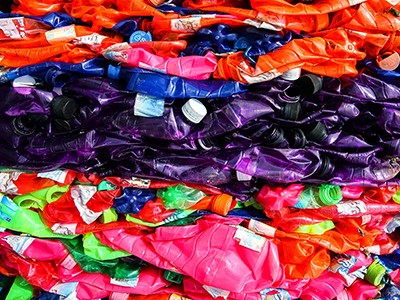- Share
Can this revolutionary plastics-recycling plant help solve the pollution crisis? A world-first facility has a new way to break down ‘unrecyclable’ plastic waste.
Pollution, environmental and human health
A news feature published 4 February 2025
Date (DD-MM-YYYY)
07-08-2025 to 07-05-2026
Available on-demand until 7th May 2026
Cost
Free
Education type
Publication
CPD subtype
On-demand
Description
The world is miserable at recycling plastics. Currently, just 10–15% of the plastic waste we generate annually is recycled — with the rest incinerated, buried in landfill or dumped as litter1,2.
A big part of the problem is that much of the waste is a dirty jumble of different plastics contaminated with food, inks and labels. It’s expensive to clean and sort this mess into streams of single-polymer, uncontaminated plastic — the kind that is generally needed for conventional ‘mechanical’ recycling, in which plastic is shredded, melted and re-formed into pellets, ready for new products.
That explains the excitement around a chemical plant that will start commercial operations this year in northeast England. In principle, it can take any kind of plastic waste, including mixed plastics deemed ‘unrecyclable’, and break it down into chemicals that are similar to those extracted from crude oil. With further processing, these chemicals can be turned back into fresh plastic. If successful, it could be a powerful example of a circular manufacturing process — in which plastic is used and reprocessed over and over again — potentially curbing the world’s dependence on fossil resources to make virgin plastics.
 How to stop plastic pollution: three strategies that actually work
How to stop plastic pollution: three strategies that actually work
The facility, near Redcar, uses a variation on a concept called chemical recycling, which breaks plastics apart into smaller chemical building blocks. Its main rival in this approach is pyrolysis: heating plastics to temperatures above 450 °C in a reactor without oxygen. But pyrolysis is energy-intensive and inefficient, with much of the plastic being turned into useless sooty char.
By contrast, the new plant uses water at high temperatures and pressures to break down plastic waste more gently and cleanly. Mura Technology, the London-based company behind the facility, says it is the first commercial-scale plant in the world to recycle plastic in this way. There’s a lot riding on its success — if it all works and runs profitably, it could trigger the launch of many more of these plants around the world.
Mura has declared the technology to be “revolutionary” because it “has the potential to help eliminate plastic waste, recycling all types of plastic to create a true circular economy”. Mura says that its process has lower carbon dioxide emissions and a higher tolerance for contaminated waste than does pyrolysis. It also emits roughly 80% less CO2 than burning the plastic in an incinerator to generate energy — a common way of dealing with waste.
Read more.....
Contact details
Email address
Telephone number
0207 8334000

Springer Healthcare Ltd
The Campus
4 Crinan Street
London
N1 9XW